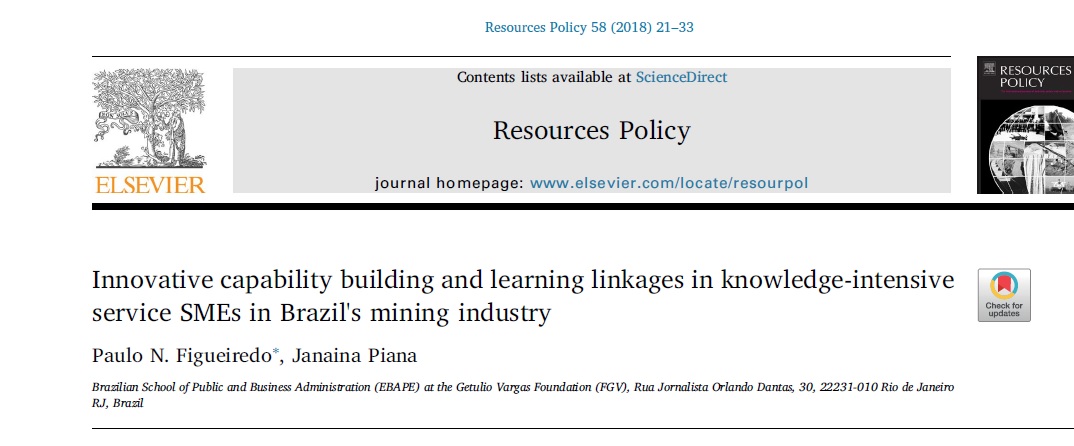
This study examines how small and medium enterprises (SMEs) that are knowledge-intensive service firms (hereafter “knowledge-intensive service SMEs”) accumulate innovative technological capabilities through learning linkages with large mining companies and other industry stakeholders in the Brazilian mining industry. Drawing on detailed, long-term, qualitative micro-level evidence gathered from extensive fieldwork, we use frameworks that identify the levels of innovative capabilities and the underlying learning linkages to examine three types of innovative capability-building paths pursued by knowledge-intensive service SMEs: (i) building innovative capability from basic up to world-leading levels, followed by diversification into novel technological activities; (ii) world leading capability building since firm’s inception’ (being born innovative), following a sustenance of such capabilities, with a potential for diversification; and (iii) the movement of building basic to intermediate innovative capabilities with a potential to accumulate further capability levels and expand the firms’ customer base. Such innovative capability building processes are more a result of individual entrepreneur impetuses than that of deliberate corporate or government policies. Decision-makers could utilise these experiences as inputs to design policies to fill this void and facilitate the spread of knowledge-based linkages and innovative activities in the Brazilian mining industry. Otherwise, a persistent absence of such policies could lead to a rapid reinforcement of the development of enclave features in this industry.
Figueiredo, P.N. & Piana, J. (2018). Innovative capability building and learning linkages in knowledge-intensive service SMEs in Brazil’s mining industry. Resources Policy, 58: 21-33 DOI: http://dx.doi.org/10.1016/j.resourpol.2017.10.012